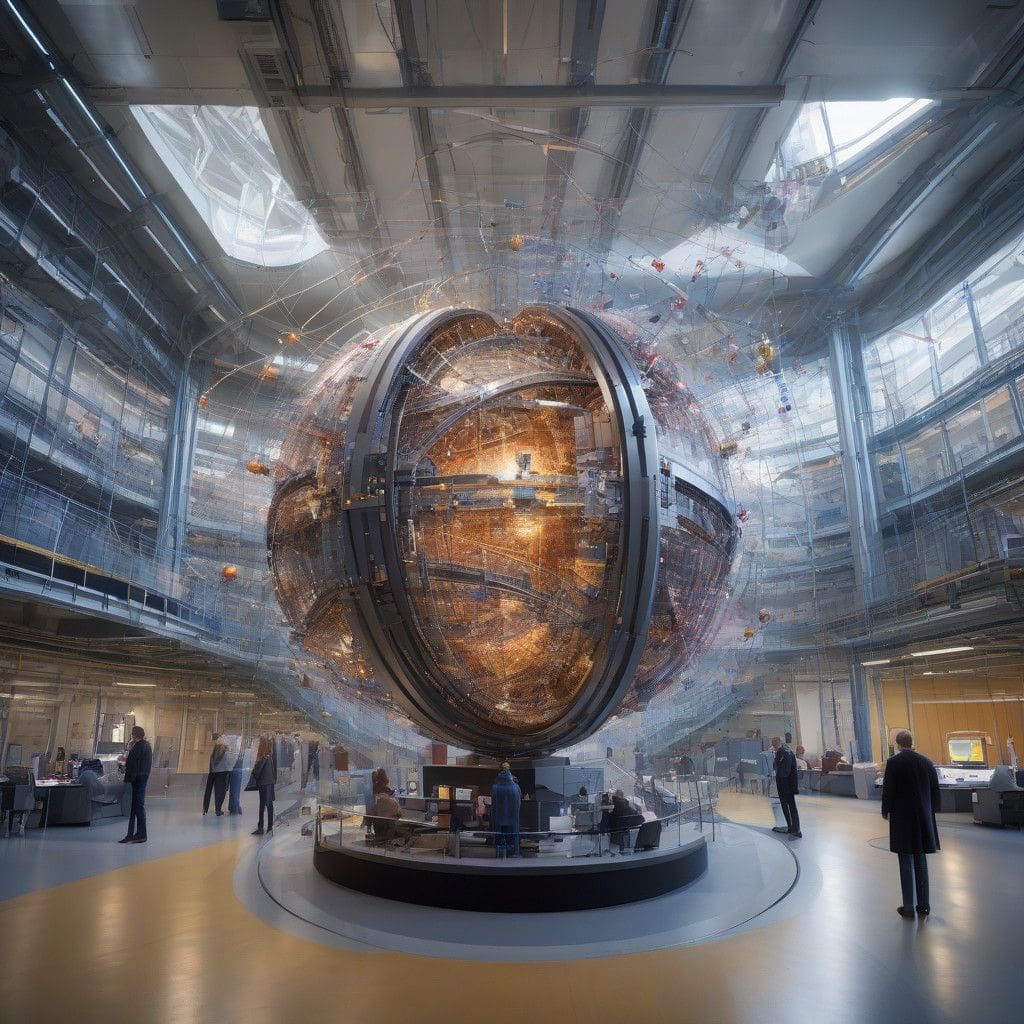CERN (the European Organization for Nuclear Research) stands as a pillar of scientific advancement, dedicated to unraveling the mysteries of the universe through particle physics research. Since its establishment, this organization has not only propelled our understanding of fundamental physics but has also become a catalyst for economic growth and innovation across its member states, particularly in the UK, its second-largest financial supporter.
The impact of CERN on global scientific research cannot be overstated. It was at CERN that the concept of the World Wide Web was born, fundamentally transforming how we communicate and access information. Moreover, advancements emerging from this institution have led to innovative approaches in medical treatments, particularly in oncology. For example, pioneering technologies and methodologies developed at CERN have contributed to more effective radiation therapies for cancer patients, highlighting the far-reaching implications of fundamental scientific inquiry.
The UK’s historical relationship with CERN has been substantial. As one of the original twelve member states, the UK has been instrumental in significant breakthroughs that have marked the course of particle physics research. The landmark discovery of the Higgs boson in 2012 is the most notable achievement attributed to the collaborative efforts of CERN’s international scientists. This discovery has not only confirmed a critical element of the Standard Model of particle physics but has also ignited interest in research-related fields, ultimately creating jobs and stimulating economic activities.
As CERN celebrates its anniversary, it enters a crucial phase where leadership and vision will determine its future trajectory. A new Director-General is set to be elected, and among the candidates is Professor Mark Thomson from Cambridge University. Thomson’s platform emphasizes a strategic plan aimed at overseeing major investment decisions and enhancing collaboration among member states. His vision includes fostering an inclusive culture within CERN, which is vital for attracting and retaining talented scientists.
Professor Thomson’s statement highlights the importance of unity and shared goals within CERN. “It’s inspiring to reflect on the seventy years of particle physics research CERN has delivered, advancing our understanding of the Universe at its most fundamental level,” he said. His commitment to ensuring that CERN continues to make significant contributions to science marks a pivotal point in the organization’s leadership evolution.
The challenges facing CERN are considerable, particularly as it prepares for a significant upgrade to the Large Hadron Collider (LHC). This upgrade is expected to enhance the LHC’s capabilities significantly, expanding the potential for new discoveries in particle physics. Under Professor Thomson’s leadership, CERN could develop a bold strategic plan that addresses these upgrades while sustaining its collaborative spirit among member states and staff.
Collaboration has always been central to CERN’s identity. With scientists from numerous countries working towards common goals, CERN exemplifies how international collaboration can yield groundbreaking scientific achievements. The UK Science and Technology Secretary, Peter Kyle, emphasized this collaborative spirit, stating, “When we work together, we can aim higher and go further, and nowhere is that truer than at CERN.” This sentiment underscores the notion that shared aspirations can drive innovation and enhance the quality of life through scientific discovery.
Looking ahead, CERN stands at the crossroads of opportunity and responsibility. The forthcoming leadership decision and strategic planning could shape the organization’s direction for decades. By embracing a clear vision and nurturing an inclusive environment, CERN can continue to be a leader in scientific research, driving innovation that extends beyond particle physics.
The potential economic impact of sustaining and growing CERN’s research initiatives cannot be ignored. As curiosity-driven science continues to fuel technological advancements, the benefits extend far beyond the scientific community. New jobs, businesses, and improved healthcare outcomes are just the beginning. The collaboration among member states, driven by a unified strategic vision, could result in substantial advancements in various sectors, creating a robust economic environment.
CERN serves as a reminder that investment in scientific research is not merely an expenditure but a pathway to future prosperity. The next few years promise to be critical in determining how CERN will navigate its challenges while continuing to pioneer innovations that impact both science and society.
In summary, as CERN marks its anniversary, the focus must be on selecting leadership that emphasizes strategic planning, collaboration, and inclusivity. These elements are essential for maintaining its standing as the world’s foremost center for particle physics research and ensuring that it continues to deliver benefits that resonate far beyond its laboratories.












